Does Cooking Spray Go Bad
Get access to everything we publish when you sign up for Outside+.
Cooking oils can be slippery to understand. Which are best to buy? How should you cook with them (or not)? Where are you supposed to store them? If you've ever wondered whether you should refrigerate your cooking oils, you aren't alone. We've covered which oils are the healthiest, helped you pick out the right oils for different cooking needs and now we're sharing our guide to oil storage.
If you're at a loss as to where different types of cooking oils should be stored, this guide will answer your most pressing questions. We're explaining which oils are best kept refrigerated and which shouldn't. Even healthy oils can turn bad in quality, taste and healthiness when stored near a stove or exposed to heat and light, so it's important to know how to store them properly.
In general, you want to store cooking oils with polyunsaturated fats (PUFAs) in the fridge. According to certified nutrition specialist and doctor of natural medicine Josh Axe, oils containing PUFAs, like nut, seed and fish oils, are especially susceptible to oxidation. Although many cooking oils will go cloudy when stored at cold temperatures, a few minutes at room temperature should help revert them to their natural state. Or, before refrigerating, place oils in a container you can scoop them out from.
So, which oils belong in the fridge and which belong in your pantry? Here's your guide.
Refrigerate these cooking oils

Olive oil
The higher monounsaturated fatty acid (MUFA) content of this heart-healthy oil, at more than 73%, makes olive oil more shelf-stable than polyunsaturated fats but less so than saturated fats. If you tend to use it quickly or you live somewhere with a cooler climate, you shouldn't need to refrigerate it. But if you buy it in large quantities or live somewhere with a warmer climate, keep the bulk of your olive oil in the fridge and maintain a small supply in a cool cabinet in a glass bottle for easy access.
Related: 7 World-Class Olive Oils

Fish oil
Brimming with heart-healthy omega-3s and -6s in an ideal ratio, fish oil is packed with essential fatty acids. So whether you get it in liquid or pill form, it's best to keep this one in the fridge.
Related: 5 Supplements to Start Taking Now
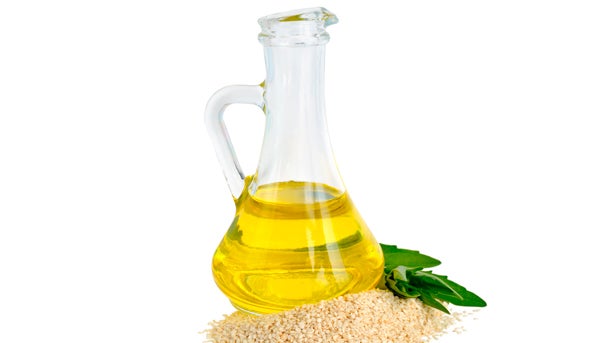
Sesame oil
Often used to complement Asian dishes, sesame oil is comprised of 40% MUFAs and 42% PUFAs. This oil is best kept in the refrigerator.
Related: Sesame Garlic Chicken with Tahini Spinach and Toasted Peanut Quinoa
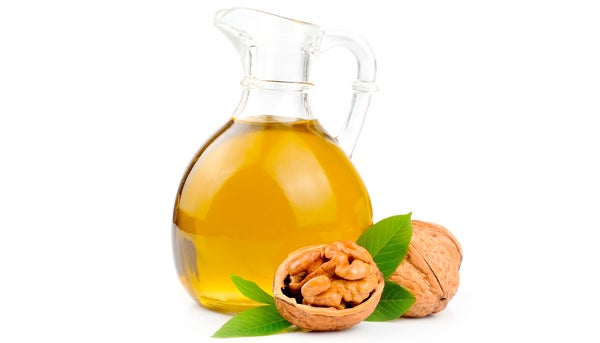
Walnut oil
This delicious nut oil is best in dressings and tossed with cooked pastas. It has a subtle but concentrated flavor so you don't need much. Though it's a good source of omega-3s and omega-6s, you likely won't be using this one often, so store it in your fridge to spare it from heat breakdown and oxidation
Related: Farfalle with Mint Walnut Pesto
Don't refrigerate these cooking oils
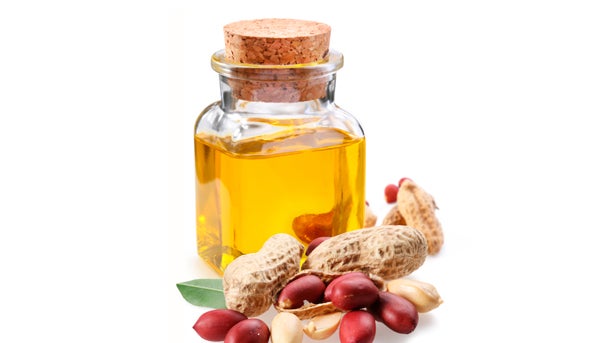
Peanut oil
At 46% MUFAs and 32% PUFAs, peanut oil is more shelf-stable. Be sure to store it in a cool, dry cabinet away from the oven.
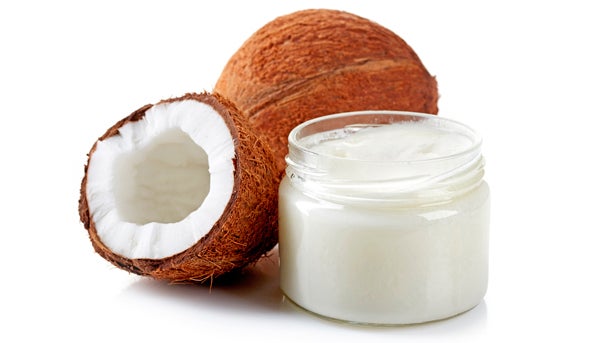
Coconut oil
With its high smoke point and composition of 90% saturated fat (about half of which is made up of healthful medium-chain triglycerides), this popular oil is shelf stable.
Related: Lemongrass Coconut Beef Stir-Fry
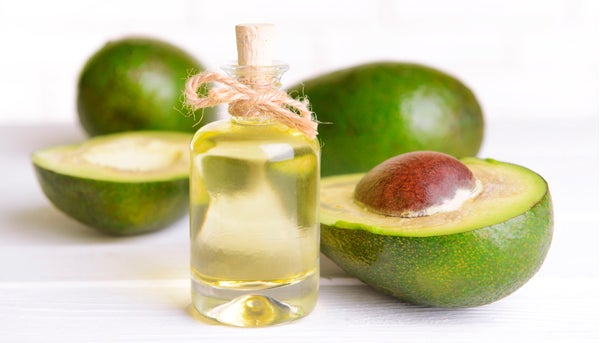
Avocado oil
The do-it-all oil with a subtle buttery flavor is comprised of 70% MUFAs, so it can handle slightly higher temperatures in a cabinet.
Related: All About Avocados
Now that you've mastered which cooking oils should be refrigerated or kept in your pantry, keep reading to learn even more:
- Everything You Need to Know About Buying and Cooking with Olive Oil
- Avocado Oil 101
- MCT Oil vs. Coconut Oil: What's the Difference?
- The Right (and Wrong) Way to Do Vegetable Oils
Does Cooking Spray Go Bad
Source: https://www.cleaneatingmag.com/clean-pantry/cooking-tips/5-cooking-oils-to-refrigerate/
Posted by: stephanbuturears.blogspot.com

0 Response to "Does Cooking Spray Go Bad"
Post a Comment